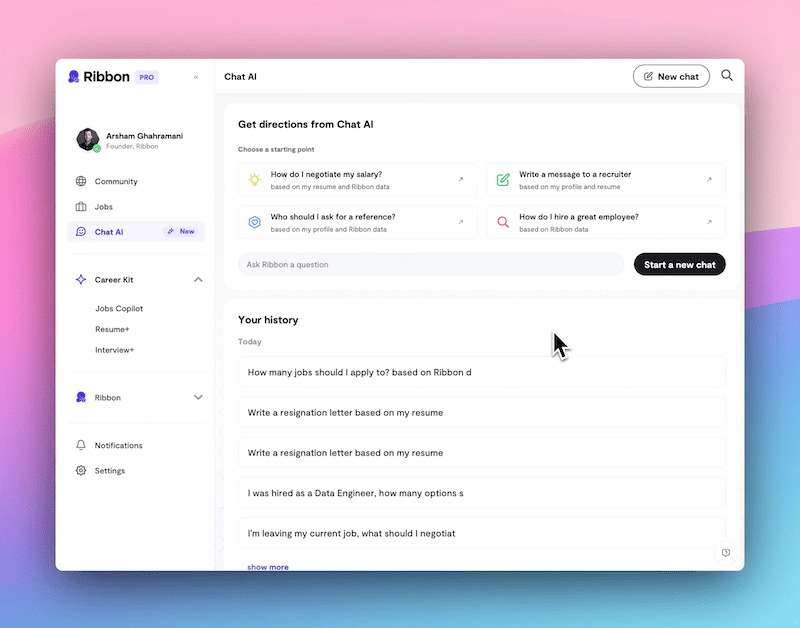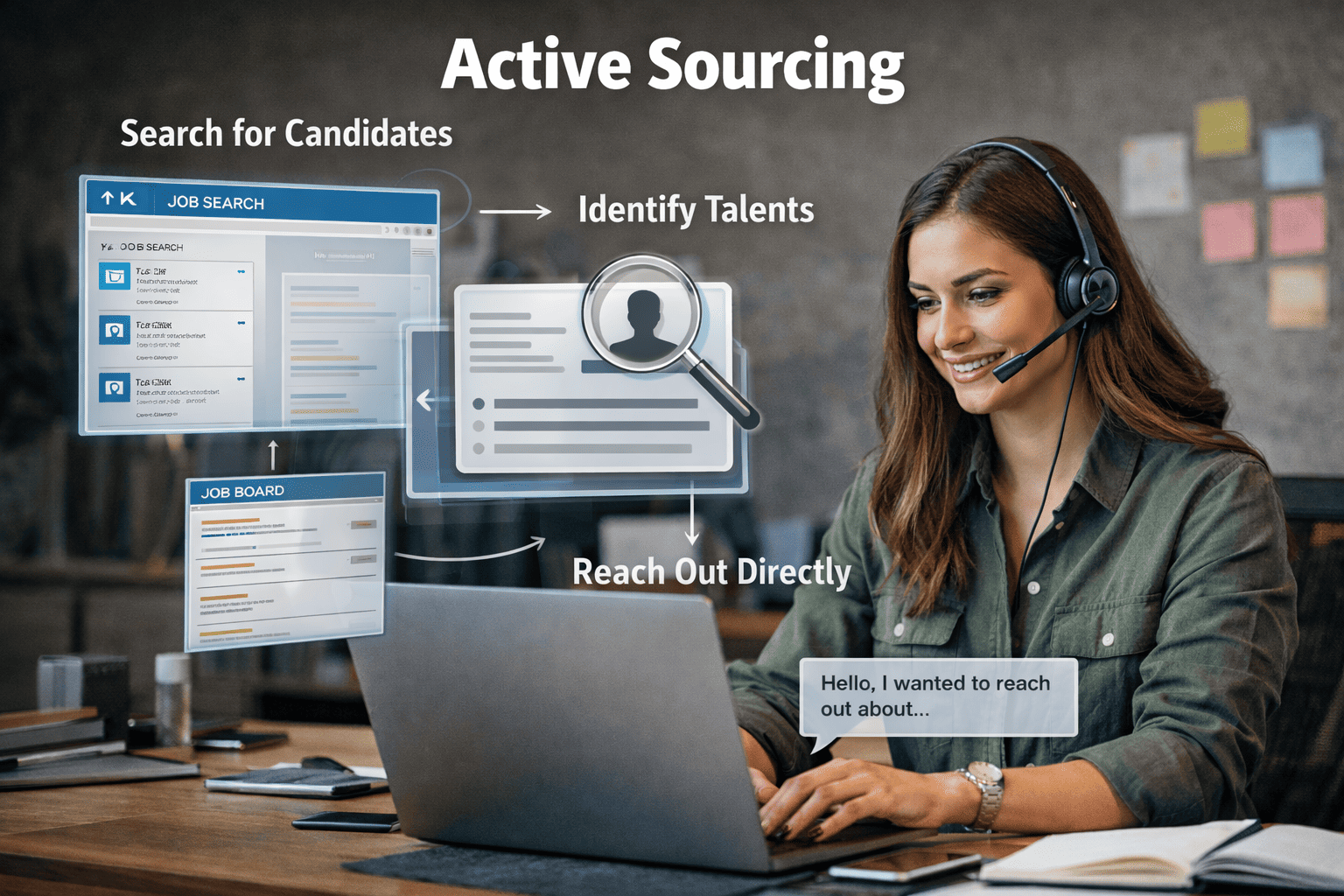Interviewer Training : a Starter Guide

Interviews are the first significant interaction between your company and potential employees.
Are your hiring managers prepared to make the most of it?
Interviewer training is a way to ensure that.
In this article, we'll explore how to prepare your managers, provides feedback, and the top tools to enhance interviewing skills.
Why is it So Necessary to Train Interviewers?

Interviews are a necessary step for every manager to hire the right team, yet many are naturally ill-adapted to conduct them. These comes from several reasons :
- No formal interviewing knowledge : The expertise of hiring managers typically lies in their functional area, not in human resources or recruitment. So there's a big chance that they ask inappropriate questions, miss key details, or rely too heavily on intuition. And it's okay. Nobody have tought them interviewing best practices, so they rely on their natural instinct and preferences.
- No awareness of biais : Hiring managers, like all humans, have unconscious biases that can influence their perception of candidates. Even 48% of HR managers admit that bias influences their hiring decisions. But these biases can lead to preferential treatment of candidates who are similar to the interviewer in terms of background, interests, or personality. They can not only undermine the fairness of the interview process but also limit diversity within the organization.
- Unstructured "conversational" interviews : Hiring managers often conduct interviews based on personal style rather than a structured approach. Structured interviews, where each candidate is asked the same set of questions and evaluated using the same criteria, are proven to be more effective and predictive of job performance. However, many managers are unaware of these methods and default to more conversational and less reliable interview techniques.
- Poor Questioning and Listening Techniques : Effective interviewing requires skill in asking the right questions, listening and probing deeper into candidates' responses. Many hiring managers lack these skills, often asking leading questions or those that do not elicit the necessary information to assess a candidate’s suitability for the role.
How to Prepare Hiring Managers for Their Interviews

As you can see, it's better to prepare and train your hiring managers before they conduct their first interview. Here’s how you can equip them with the tools and knowledge they need.
1. Provide Preparation Checklists
Start by giving your hiring managers detailed checklists. These should include key areas such as understanding the company’s strategy, mission, and structure. They should also be able to discuss job descriptions, perks, and benefits comprehensively. Make sure your managers have coordinated with their team and reviewed candidates’ resumes thoroughly before the interview.
2. Train on Structured Interviews
Structured interviews are essential for consistency and fairness. Train your hiring managers on how to use structured interviews effectively. This includes preparing behavioral questions and using rating scales to assess candidates objectively.
3. Bias Awareness Training
Bias awareness training is crucial. Many hiring managers might not realize their unconscious biases influence their decisions. Encourage them to take tools like the Implicit Association Test and provide educational resources to help them identify and mitigate these biases.
4. Mock Interviews and Role-Playing
Conducting mock interviews and role-playing scenarios can be highly beneficial. These exercises allow hiring managers to practice their skills in a controlled environment and receive immediate feedback. This practical experience helps build confidence and competence in conducting real interviews.
How to Give Feedback to Hiring Managers

The first interviews will never be perfect. But that's how you learn to do better. You have to reinforce best practices among your hiring managers by making them learn from their experience. Here’s how you can give them effective feedback :
1. Establish a Feedback Loop
Creating a structured feedback loop is an interesting practice. After each interview, gather data on the interviewer's performance. This can include metrics such as talk-to-listen ratios, types of questions asked, and candidate engagement levels. This helps identify specific areas where the interviewer excelled and where improvement is needed.
2. Use Specific Examples
When giving feedback on their past interviews, be specific. Highlight particular instances from the interview to illustrate your points. For example, if an interviewer interrupted the candidate frequently, mention this with exact timestamps or instances. Specific feedback is more actionable than general comments, allowing hiring managers to understand precisely what needs to change.
3. Focus on Both Strengths and Areas for Improvement
Balance your feedback by acknowledging the interviewer’s strengths while pointing out areas for improvement. This approach ensures that feedback is constructive and motivates the interviewer to build on their strengths while addressing weaknesses. For instance, commend them for asking insightful questions while suggesting they improve their listening skills to allow candidates more time to respond.
4. Encourage Peer Reviews
Implement a system of peer reviews where hiring managers can observe and give feedback to each other. Peer reviews can provide different perspectives and insights, promoting a collaborative approach to improvement. It also allows interviewers to learn from each other’s experiences and best practices.
What are the Best Tools to Train Hiring Managers?

Interviewing is hard, but fortunaly many tools are emerging on the market to assist. Here are some examples to train yourself or your managers :
1. Interview Guidelines :
Interview guidelines are lists of standardized questions tailored to the job roles and key points that you can rely on during interviews. Such guidelines help ensure consistency and thoroughness, reminding interviewers of covering key aspects of the candidate’s qualifications and fit for the role.
Examples of platforms :
- Workable: Offers comprehensive interview kits that include structured interview questions and guidelines.
- InterviewMocha: Provides customizable interview guides and templates to ensure consistency.
2. Video Interview Platforms :
You want to streamline your interview digitally and record them easily ? Video interview platforms like VidCruiter and HireVue offer features such as interview recording, which allows for detailed review and feedback. They also provide automated scheduling and standardized question sets, which help maintain consistency and reduce bias.
3. Mock Interviews and Role-Playing :
Mock interviews and role-playing platforms can provide practical experience. They allow hiring managers to practice their skills in a controlled environment and receive immediate feedback. There are tools like :
- MockInterview: An online platform that allows users to practice mock interviews with professionals and receive feedback.
- Big Interview: Provides tools for practicing mock interviews with AI-driven feedback and analysis.
5. Online Training Modules :
Online training modules and courses are also definitely valuable resources. Platforms like LinkedIn Learning and Coursera offer courses on interview techniques, unconscious bias, and effective communication. These modules provide hiring managers with flexible learning opportunities, allowing them to develop their skills at their own pace.
6. Feedback Tools
You might also use software that allows for structured feedback on interviews, highlighting both strengths and areas for improvement. There are not many of them, but you can use these two tools :
- Loom: Allows recording of interviews and provides tools for team feedback and analysis.
- Feedbackly: Specializes in collecting structured feedback from interviewers and candidates to improve the interview process.
7. Legal Compliance Resources :
Not be forgotten, compliance platforms ensure your hiring managers are equipped with resources on legal compliance. This includes updated lists of appropriate and inappropriate questions and guidelines on avoiding discrimination. Tools like :
- HR Compliance Assist: Offers up-to-date information on legal requirements for interview questions and processes.
- XpertHR: Provides comprehensive guides and updates on employment laws and compliance requirements.
Noota: The AI Interview Training Tool

Do you want to improve the interviewing process through detailed analysis and actionable insights ? Noota is an interview assistant for recruiters that enhance your process :
- Interview Guidelines : Noota allows you to create and follow lists of standardized questions and key watch points in real-time. This ensures that all interviewers cover critical topics and evaluate candidates on the same criteria.
- Conversation Intelligence Metrics : Noota enables you to analyze key conversation metrics such as talk-to-listen ratio, sentiment, and hesitation. The talk-to-listen ratio is particularly valuable as it helps you understand the balance of dialogue during the interview. By analyzing these metrics, you can highlight areas where interviewers need to improve their interaction skills, fostering a more engaging and effective interview process.
- Recording & Transcription : Noota standout features are detailed transcriptions of interviews. These transcriptions allow for a thorough evaluation of questioning techniques, engagement levels, and potential biases. With detailed transcripts, you can pinpoint specific moments where an interviewer may have deviated from best practices or exhibited unconscious bias.
You want to ensure that your hiring managers are not only asking the right questions but also engaging with candidates in a meaningful and unbiased manner ? Try Noota for free.
Leverage your Interview Data
AI interview notes, scorecard, follow-up, ATS integration, and more...
Related articles

Forget note-taking and
try Noota now
FAQ
In the first case, you can directly activate recording as soon as you join a videoconference.
In the second case, you can add a bot to your videoconference, which will record everything.
Noota also enables you to translate your files into over 30 languages.

.svg)
.svg)

.webp)

.png)


.svg)
